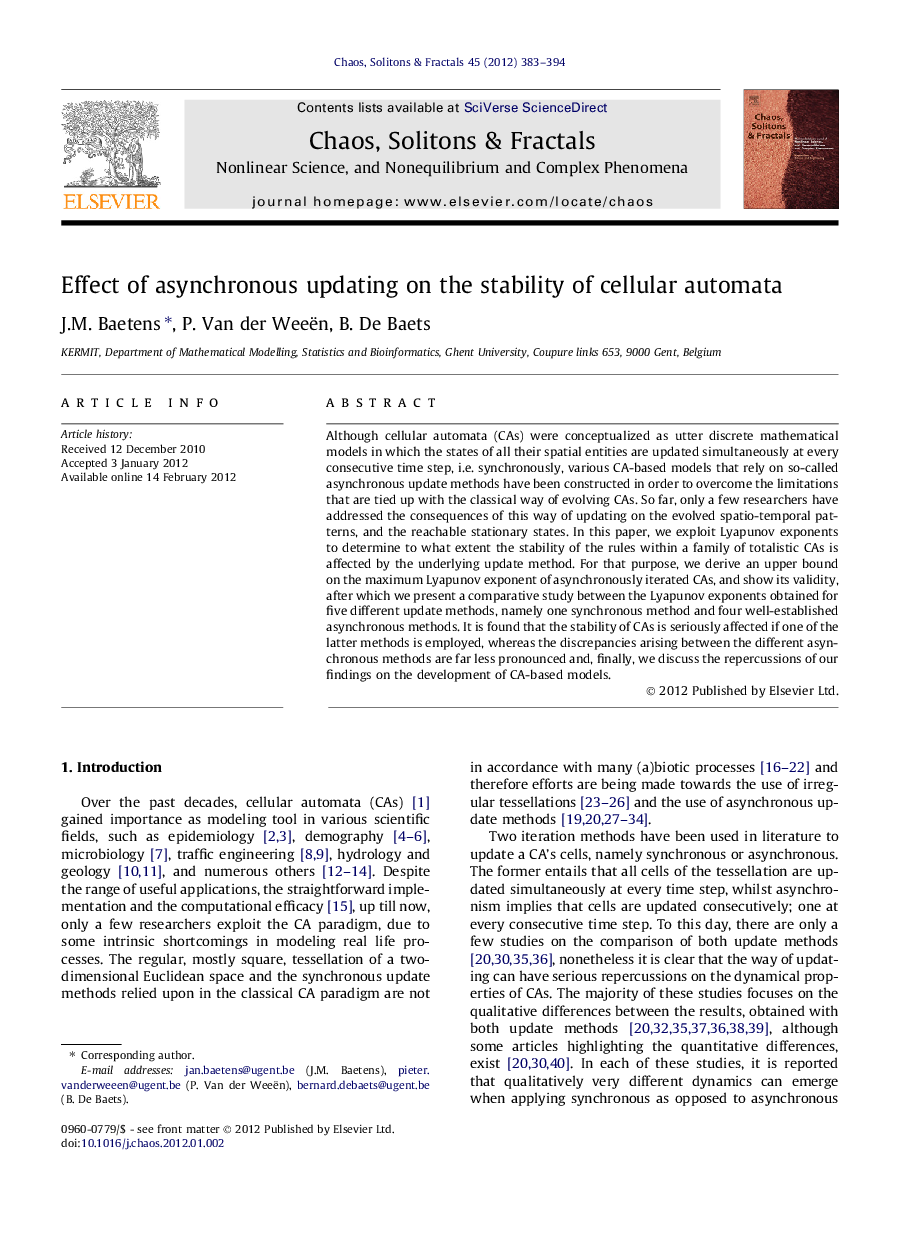| کد مقاله | کد نشریه | سال انتشار | مقاله انگلیسی | نسخه تمام متن |
|---|---|---|---|---|
| 1895873 | 1044397 | 2012 | 12 صفحه PDF | دانلود رایگان |

Although cellular automata (CAs) were conceptualized as utter discrete mathematical models in which the states of all their spatial entities are updated simultaneously at every consecutive time step, i.e. synchronously, various CA-based models that rely on so-called asynchronous update methods have been constructed in order to overcome the limitations that are tied up with the classical way of evolving CAs. So far, only a few researchers have addressed the consequences of this way of updating on the evolved spatio-temporal patterns, and the reachable stationary states. In this paper, we exploit Lyapunov exponents to determine to what extent the stability of the rules within a family of totalistic CAs is affected by the underlying update method. For that purpose, we derive an upper bound on the maximum Lyapunov exponent of asynchronously iterated CAs, and show its validity, after which we present a comparative study between the Lyapunov exponents obtained for five different update methods, namely one synchronous method and four well-established asynchronous methods. It is found that the stability of CAs is seriously affected if one of the latter methods is employed, whereas the discrepancies arising between the different asynchronous methods are far less pronounced and, finally, we discuss the repercussions of our findings on the development of CA-based models.
► An upper bound on the Lyapunov exponent of asynchronously updated CA is established.
► The employed update method has repercussions on the stability of CAs.
► A decision on the employed update method should be taken with care.
► Substantial discrepancies arise between synchronously and asynchronously updated CA.
► Discrepancies between different asynchronous update schemes are less pronounced.
Journal: Chaos, Solitons & Fractals - Volume 45, Issue 4, April 2012, Pages 383–394